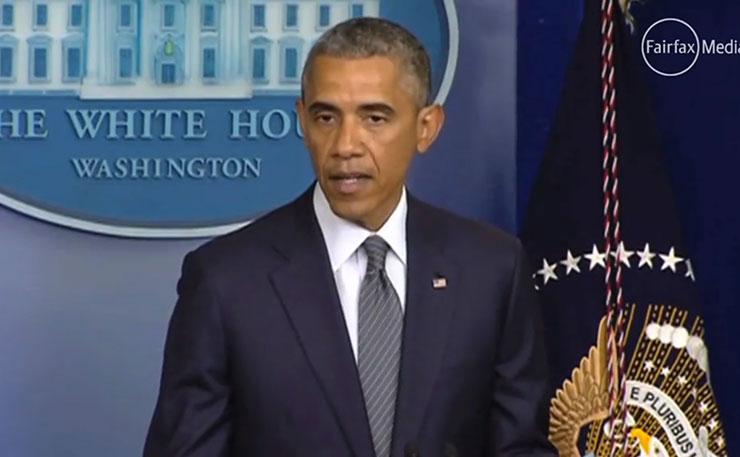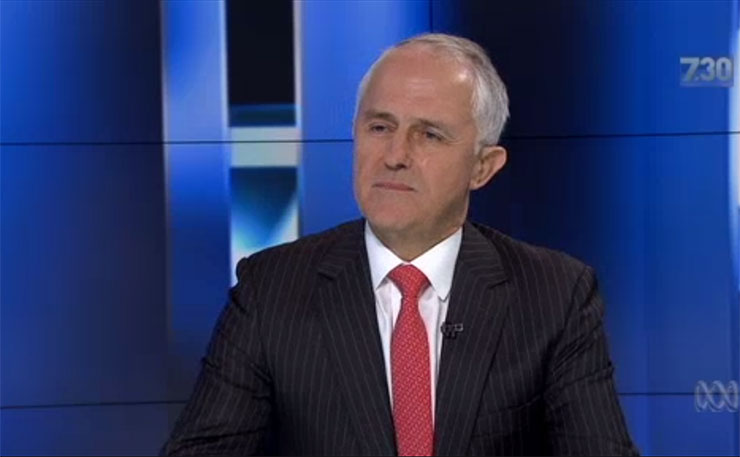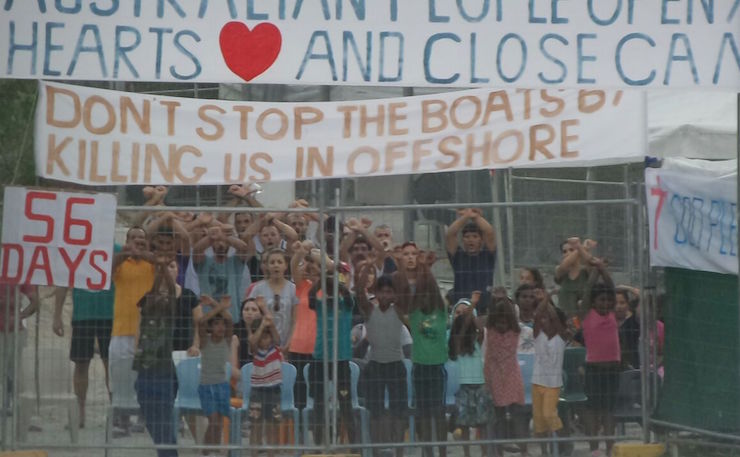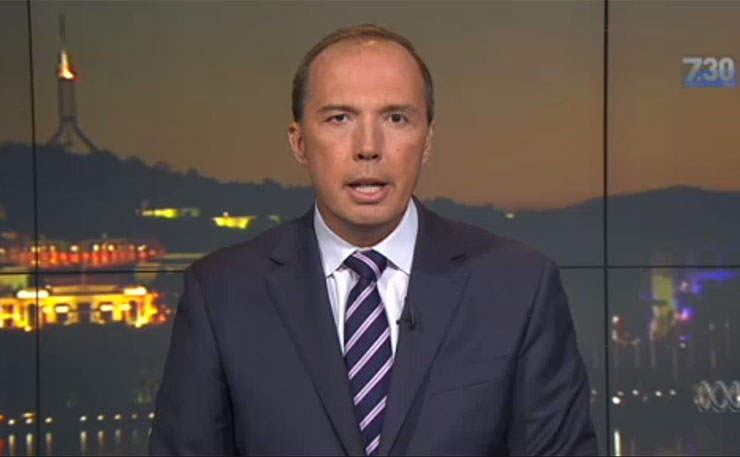It’s not often you get to say this but the Minister for Immigration did a great public service last week, writes Max Chalmers.
In the past year or so Peter Dutton has been a regular on Sky News’ conservative talk shows, striving to build a rapport with the Coalition’s base, who have somehow been left with him as their flag bearer.
It was in one such chat that Dutton said it was a mistake to let in Lebanese refugees and in another that he argued refugees are simultaneous guilty of taking welfare and jobs. This time, however, it was Malcolm Turnbull he would be discrediting – along with a fair number of his parliamentary colleagues, not to mention himself. Talking to Andrew Bolt, Dutton put to bed a long sustained fiction.
In 2016, Malcolm Turnbull emerged from Barack Obama’s global refugee summit to announce Australia would contribute by taking some of the refugees waiting for resettlement from Costa Rica. Months later, Turnbull unveiled a reverse arrangement: the US would take 1,250 of the refugees Australia has jailed on Manus Island and Nauru.

These two deals always appeared to be one, with the Costa Rica agreement a quid pro quo. Turnbull and other Coalition MPs adamantly denied this and mere weeks ago Dutton insisted it was “not a quid pro quo”.
Yet last week Dutton changed tack. He declined to deny it was a “quid pro quo”, when asked by Bolt.
“We won’t take anyone until we’ve had assurances that people are going to come off Nauru and Manus,” the Minister said.
By effectively conceding the swap, Dutton brought into focus its unpalatable rationale. Both Australia and the US have groups of people on their doorsteps in need of protection who they’d rather not let in. Yet the problem for neither state is strictly one of resources. The swap, certainly on the Australian side, is driven largely by domestic prejudice.
Close to 2,000 people are still being held on Manus and Nauru. Even if you ignore the clearly documented cases of abuse and mistreatment, as well as the underlying psychological damage detention and limbo visit on an individual, it’s clear the situation can not hold much longer. PNG’s top court has ruled the Manus detention centre must be closed. No-one was ever supposed to be resettled on Nauru. The Cambodia solution, intended to help move people off Nauru, has collapsed. Malcolm Turnbull’s government needs to find a place for these people to go and they need to do it fast.
Even if you abide by the Coalition’s logic of deterrence at all costs, it’s hard to see why it would be appropriate to resettle people in the US but not in Australia. The basic logic of offshore settlement is that by denying a favourable resettlement experience and outcome you can stop further asylum seekers getting on boats. A US solution contradicts that logic. Given that, there are two obvious explanations for why Turnbull has chosen to go ahead with it.
Firstly, a US solution helps the Coalition save face. Turnbull can now move a substantial number of people off Manus and Nauru. He may or may not care about their wellbeing, but either way this is a policy problem he must eventually deal with for his own sake. Resettlement in the US is a quick and effective way to do so. The Coalition has vowed not to resettle these people in Australia and this way it does not have to do so. Turnbull’s critics on the right are kept at bay for another day.

Secondly, this option allows Turnbull to indulge Australian prejudice. Refugees who come by boat have endured years of demeaning characterisations; ‘queue jumpers’, ‘economic migrants’, ‘baby throwers’, ‘welfare takers’, ‘job thieves’.
Just this week the Coalition added a new slur to the never ending list: “fleas”. Why take Central American refugees instead of the ones Australia is detaining? To placate the prejudice in your own party on among your domestic constituents.
The US deal acknowledges a truth the Coalition dare not speak. Most of the people on Manus and Nauru are refugees with a genuine need for resettlement in a safe, stable, and economically developed nation. It allows that to happen without forcing Turnbull et al to combat the hysterical and now deep-seated hatred they have sowed at home.
On the US side there is likely some of this at play as well.
The major advantage for America appears to be drawing migrants and asylum seekers away from the country’s southern border. In recent years, both the US and Mexico have seen significant numbers of people cross their borders, attempting to escape violence in Central America’s so called Northern Triangle.
In July 2016, Secretary of State John Kerry announced the US would take small numbers of refugees from Costa Rica, a transit country in which people would be screened before coming to the US.
But the number of refugees taken from Nauru and Manus in the swap is almost certain to be higher than the number sent to Australia from Costa Rica. If this is confirmed, the obvious question for the US will be why it agreed to take on a greater strain than necessary. Perhaps it did so out of sympathy for the people on Manus and Nauru. Perhaps it was a favour to Malcolm Turnbull.

And then again, maybe the reasoning was similar to Australia’s. Maybe the deal represented a chance to push a demonised group – in this case Central Americans or, as Donald Trump has vaguely referred to them, “bad hombres” – to the opposite side of the world.
There is not yet much on the record about why the Obama administration sought this agreement. On the other side of the Pacific, however, the logic is clear. Keep these people away from us, whatever the cost.
Donate To New Matilda
New Matilda is a small, independent media outlet. We survive through reader contributions, and never losing a lawsuit. If you got something from this article, giving something back helps us to continue speaking truth to power. Every little bit counts.





